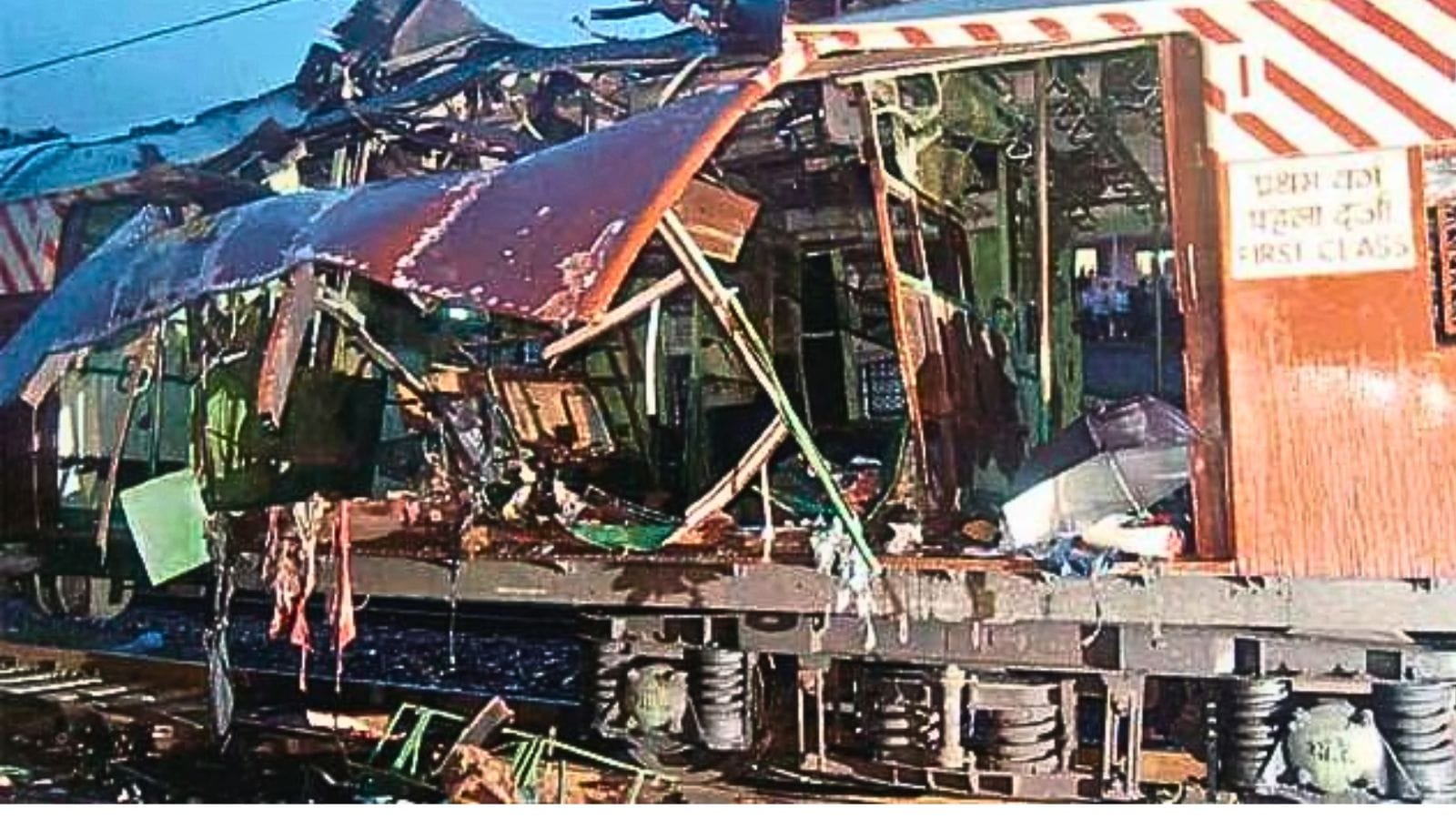 |
|
The recent acquittal of the accused in the 2006 Mumbai train blasts has ignited a national debate about the efficacy of India’s criminal justice system in handling terrorism-related cases. The Maharashtra government and legal experts have expressed concern over the Mumbai High Court’s ruling, emphasizing the need to critically analyze the judgment and its far-reaching implications for the investigation and prosecution of similar offenses across the country. The article highlights the tragedy of the July 11, 2006, Mumbai train blasts, where a series of coordinated explosions resulted in the deaths of over 180 people and left countless others injured. The event triggered widespread anger and a strong demand for justice. Initial investigations focused on various extremist groups, with the Maharashtra Anti-Terrorism Squad (ATS) eventually taking charge of the inquiry. Following the filing of a charge sheet in 2007, the trial lasted eight years. However, the prosecution encountered significant challenges related to evidence, the reliability of eyewitness accounts, and the overall integrity of the investigative process. Despite the conviction of 12 accused in September 2015, the Mumbai High Court acquitted all accused on July 21, citing insufficient evidence. This decision has raised serious questions about the effectiveness of the criminal justice system in securing convictions in terror cases. The acquittal is undoubtedly a setback for the victims and their families who have been seeking justice for nearly two decades. It serves as a wake-up call for all agencies involved in the prosecution and investigation of this horrific tragedy. However, the prosecution retains the option to appeal the High Court’s decision in the Supreme Court. This process could involve re-evaluating the evidence and engaging the apex court in deliberating on the principles of justice and civil rights. The prospect of a Supreme Court appeal does not guarantee a different outcome. It highlights the urgent need for a rigorous review of the initial investigation and trial processes. A central question is whether the resources currently allocated to combating terrorism are adequate or if a paradigm shift is needed in how these cases are approached and prosecuted. The case provides several key lessons for strengthening India’s counter-terrorism efforts.
One of the most critical areas for improvement is evidence collection and preservation. A recurring flaw in the prosecution of terror cases in India is the way evidence is gathered, preserved, and presented in court. In the 2006 Mumbai blasts case, inadequate forensic techniques, poorly documented eyewitness accounts, and a lack of corroborative evidence were major issues. The establishment of standardized guidelines for evidence collection is essential. Law enforcement agencies must be equipped with the necessary tools and technology for effective data gathering. Furthermore, the systems for witness protection and management require significant improvement. Witness intimidation remains a major obstacle to securing convictions. Many potential witnesses are hesitant to testify due to fear. Implementing structured witness protection programs could encourage testimony and minimize the risks faced by those willing to stand up against terror. Seamless inter-agency coordination at all levels is also essential. Terror investigations often have inter-state and international ramifications, requiring high levels of collaboration and cohesion between intelligence agencies, investigating agencies, and the prosecution wing at both the state and central levels. Unfortunately, petty politics and competition between agencies and individuals can negatively affect the course and outcome of high-profile terror investigations. A cohesive framework for sharing intelligence and operational strategies is vital. When various arms of law enforcement agencies work together seamlessly, the chances of missed connections and overlooked evidence decrease significantly. The judiciary's role in sensitive cases must also be understood and analyzed. Higher courts must be equipped to recognize the complexities involved in terror prosecutions. This requires training judges to better handle cases with national security implications that are investigated and tried under anti-terror legislation. A balance must be struck between protecting civil liberties and ensuring timely justice for terror victims. Inordinate delays in the trial and appeals process contribute to acquittals.
The article argues against drawing quick conclusions about communal bias in the criminal justice system based on acquittals, suggesting such views are often driven by ideological bias and a lack of nuanced understanding of internal security challenges. It highlights the importance of understanding community dynamics for more effective counter-terrorism strategies. Collaborating with community leaders can build trust between law enforcement agencies and the populace, serving as a deterrent against radicalization. The author emphasizes the need to remember the real pain of the families of terror victims and the trauma of survivors. Comprehensive, long-term rehabilitation strategies are crucial. Financial compensation alone is insufficient; other types of interventions are necessary. Preventive mechanisms, such as community-based initiatives for at-risk youth, can play a major role in undermining terrorist recruiting efforts. Promoting societal cohesion is essential, rather than fostering fear and division that can fuel a cycle of violence. In conclusion, the acquittal in the 2006 Mumbai train blasts represents a setback in India’s fight against terrorism. It highlights gaps in the system and provides an opportunity to reevaluate approaches to investigation and prosecution. Justice for terror victims must be a tangible outcome. By examining past failures and implementing reforms, India can honor the memories of those lost and work towards a more just future. The article underscores the importance of acknowledging the complexities of terrorism and the collective responsibility to ensure that justice is both served and seen to be served. The fight against terror requires unwavering courage, professional excellence, and a sense of common purpose from every element of the justice system. The author, a serving IPS officer, presents his personal views on the matter.
Source: Mumbai train blasts acquittal: Justice must be tangible, not merely aspirational
